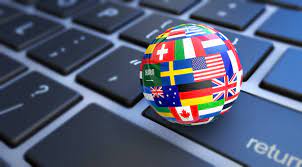In our increasingly interconnected world, effective communication is essential for personal, business, and cultural exchanges. However, language barriers can often impede this communication. This is where translation services step in to bridge the gap and facilitate understanding across languages. Let’s explore the significance of translation services and their various applications.
What Are Translation Services?
Translation services involve the conversion of text or spoken content from one language into another, while maintaining the original meaning, context, and nuances. These services are provided by professional linguists and can cover various types of content, including documents, websites, marketing materials, legal texts, medical records, and more.
Applications of Translation Services:
Business and International Trade: In the global marketplace, translation services are vital for businesses to expand their reach and communicate effectively with international clients, partners, and customers.
Legal Documents: Legal translation services are crucial for the accurate translation of contracts, patents, legal agreements, and court documents, ensuring that the content remains legally binding and accurate.
Medical and Healthcare: In the healthcare sector, accurate translation of medical records, patient information, and pharmaceutical documents is essential for providing effective healthcare to individuals from diverse linguistic backgrounds.
Marketing and Advertising: Marketing materials and advertisements must be culturally adapted and linguistically accurate to resonate with target audiences in different regions.
Website Localization: To reach a global audience, businesses often require website translation and localization services to make their online content accessible and culturally relevant.
Literature and Arts: The translation of literary works, from novels to poetry, allows readers to explore the rich diversity of world literature.
Government and Diplomacy: Governments rely on translation services for diplomatic communications, international agreements, and foreign policy matters.
Education: Translation services support educational institutions in translating academic materials, making education accessible to international students.
Immigration and Visa Documents: Translation of immigration documents, such as birth certificates and passports, is essential for the immigration process.
Challenges and Considerations:
Accuracy: The primary challenge in translation is maintaining the accuracy and integrity of the original content.
Cultural Sensitivity: Translators must consider cultural nuances and sensitivities to ensure that the translated content is culturally appropriate.
Specialized Fields: Certain fields, such as legal or medical translation, require expertise in the specific terminology and language nuances of that industry.
Technology Integration: Translation services often utilize technology, such as translation software and artificial intelligence, to enhance efficiency and accuracy.
Choosing the Right Translation Service:
When selecting a translation service, consider factors like the service’s reputation, the qualifications of their translators, turnaround times, pricing, and whether they offer the specific language pairs and expertise your project requires.
In an increasingly globalized world, translation services are indispensable for individuals and businesses looking to communicate effectively across linguistic and cultural boundaries. These services not only facilitate international trade and cooperation but also contribute to the preservation of languages and the sharing of diverse knowledge and experiences. Whether you’re a business expanding into new markets or an individual seeking to connect with people from different backgrounds, translation services are key to breaking down language barriers and fostering meaningful connections.





